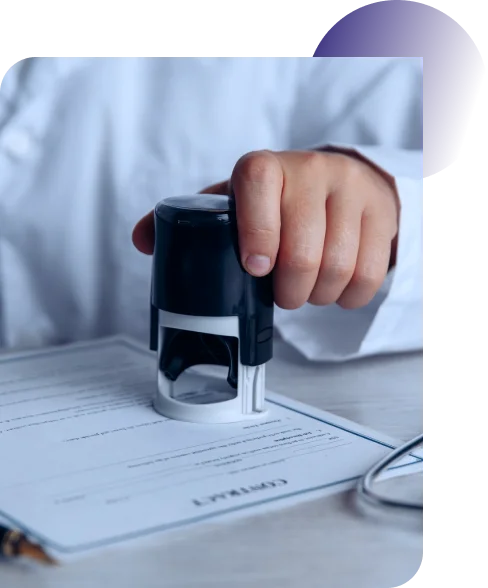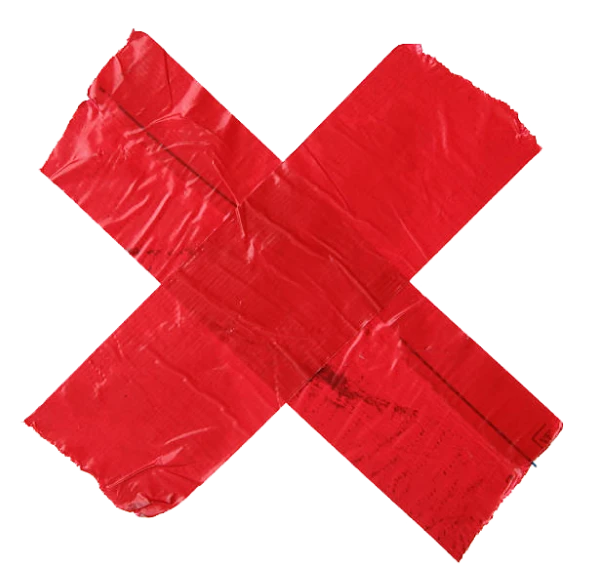Medical Credentialing Services
Get Credentialed & Enrolled. 2X Faster and Easier!

1st Class Reimbursement
Maximum Privileges
Billing-Ready
Swift Reimbursement
Payer Support
Minimize Denials
We champion a provider's access to prized in-network contracts...
BellMedEx provider enrollment services unlock in-network contracts, no matter how exclusive the payor panel.
- Advocacy for healthcare providers
- Collaborate with insurance companies
- Secure your place in premium networks
- Maximum hospital privileges

BellMedEx Provider Credentialing Services
We Enroll Providers In Premium Payer Networks In Record Time!
Only a credentialing provider is eligible to receive payments from the payer and work in compliance with the state and federal regulations. Medical credentialing authorizes physicians to practices in a specific facility and be included in insurance networks like CMS/Medicare, Medicaid, Aetna, Cigna, Humana, UnitedHealthcare, and Blue Cross Blue Shield.
As a provider, you want fast credentialing so as to start practicing and billing (legally and ethically). But credentialing is a complex process that involves a lot of documentation and verification at different stages by the insurance network. This means a single mistake can result in denials and wastage of resources such as time and money.
BellMedEx medical billing company offers the best healthcare credentialing solutions. Our professionals handle all the tasks for you, from primary source verification to enrollment in premium payer networks. We do all of this in minimal time and budget.
Our Medical Credentialing Process
A Walkthrough of Our Specialist-Vetted Provider Credentialing Process
BellMedEx’s provider credentialing process is not just a routine procedure, but a validated and certified process that ensures the highest standards of compliance. We have achieved up to 98% success rate of getting providers approved in premium payer networks with maximum privileges in their specific specialties. The process typically includes the following steps:
Surveying the provider
Our credentialing process begins with an in-depth survey conducted by our credentialing specialists. This process involves comprehensive interviews with providers, gathering essential data such as license numbers, educational history, demographics, and professional background.
Choosing the insurance company
Our medical credentialing services guide providers in strategically choosing insurance partners aligned with their practice goals and license type, while also finalizing insurance panels based on practice location.
CAQH Enrollment and Management
We take care of CAQH application submissions, manage ProView accounts, and keep credentials current for smooth primary source verification. We also assist with payer credentialing submissions, ensuring quick insurance panel integration and accurate profiles that enhance network engagement and the quality of patient care.
Ensure Fast Credentialing Approval
Although the typical timeline is 60-120 days, our provider credentialing experts take proactive steps to accelerate the process. Our team engages in weekly interactions with payers, advocating for the rapid processing and endorsement of your credentialing applications.
In-Network Enrollment
Upon completing credentialing, your application enters the contract phase. Here, an in-network contract may be offered, including fee schedules and eligible CPT billing codes. We handle closed panel challenges, advocating through appeals to secure your inclusion. With successful credentialing, direct billing becomes feasible, often with preferred reimbursement rates for in-network providers.
Winning you Hospital Privileges Application
As credentialing wraps up, our active involvement persists. We assist you in gaining all necessary hospital privileges: whether it’s admitting, courtesy, or surgical rights.
Ongoing Monitoring and Updates
Our continuous oversight ensures that your company’s credentials remain current and that you stay credentialed without interruption. Our experts diligently track your credentialing expirations and conduct comprehensive daily and weekly reviews to maintain your active status. You can rest easy knowing that your credentials are in good hands with us.
Complete Medical Credentialing Solutions
Helping Health Care Providers With All Their Credentialing Needs
BellMedEx credentialing company offers all-inclusive provider credentialing services for healthcare professionals and organizations. Here’s an overview of the medical credentialing and enrollment services we provide:
Medicare and Medicaid Provider Enrollment
We enroll providers in Medicare and Medicaid programs, which are the largest health insurance programs in the US, covering millions of Americans. By enrolling in these programs, providers can expand their patient base, increase their revenue, and comply with federal and state regulations.
Commercial Insurance Credentialing
We credential providers with commercial insurance payers like Aetna and Humana, which are private health insurers that offer different plans and networks for their members. By credentialing with these companies, providers can access more patients and negotiate better reimbursement rates.
NPI Registration (Type 1 and Type 2)
Our credentialing solutions help individual providers (Type 1) and organizations (Type 2) with obtaining and updating their National Provider Identifier (NPI), which is a unique 10-digit identification number assigned to health care providers by the Centers for Medicare & Medicaid Services (CMS). Having an NPI is required for billing, reporting, and electronic transactions.


CAQH Registration and Maintenance
We help providers stand head and shoulders above their peers. Our credentialing specialists register and maintain every provider’s profile on the Council for Affordable Quality Healthcare (CAQH) ProView, which is an online database that collects and verifies provider information for credentialing purposes. By using CAQH ProView, providers can refine their credentialing process with multiple health plans.
MCR DMEPOS Enrollment
Providers using our credentialing service can enroll in the Medicare DMEPOS program, which covers items such as wheelchairs, oxygen equipment, braces, and diabetic supplies. By enrolling in this program, providers can offer these items to Medicare beneficiaries, improve their quality of care, and receive reimbursement from Medicare.
Hospital Privileges
We facilitate physicians with obtaining and renewing their hospital privileges, which are the rights and responsibilities granted by a hospital to a provider to practice within its facilities. By having hospital privileges, providers can admit and treat patients, access hospital resources, and collaborate with other health care professionals.
Contract Negotiation
Revalidation & Re-Credentialing
Reimbursement Issues Audit


Providers State License
DEA Certificate & Renewal
CLIA Registration

Best Physician Credentialing Services Near Me
BellMedEx Offers The Best Credentialing Services Near You In The USA
Looking for the best credentialing solutions by credentialing specialist companies near you? With over a decade of experience, BellMedEx is the best provider credentialing company for practices across all 50 states of the USA.
We start by thoroughly assessing your specific practice needs and the requirements of your state and the payers you want to work with. From there, we leverage our extensive payer contracts and relationships to compile and verify all necessary documents, licenses, certifications, insurance, and more to meet each payer’s distinct criteria.
For example, when credentialing a physician in California, we would verify their medical license with the Medical Board of California, check for any disciplinary actions on the National Practitioner Data Bank, review their malpractice insurance coverage, and collect a current CV and diploma before submitting to health plans like Blue Shield of California and Health Net.
Additional credentialing services like re-credentialing, expediting credentialing, and credentialing for locum tenens providers are also a part of BellMedEx Provider Credentialing and Enrollment Service offerings.
Payer Enrollment and Medical Doctor Credentialing
Credentialing and Payer Enrollment Services For All Healthcare Organizations
Proper credentialing is essential for healthcare providers to deliver quality care, attract patients, and maintain compliance. Our comprehensive credentialing service helps providers of all specialties navigate these challenges. Our payer enrollment credentialing services are available for:
Physicians
PT/OT/SLP
Ambulatory Surgery Centers (ASC)
Optometrists, Audiologists
PAs/NPs
Podiatrists (DPM)
Urgent Care Facilities
Behavioral Health Providers
Hospitals
Chiropractors (DC)
Diagnostic Testing Facilities
Complete Payer Support
Enroll With Your Favorite Payer Through BellMedEx
Government Payers
Examples include – Medicare, Medicaid, and TRICARE.
Commercial Payers
Examples include – Blue Cross Blue Shield, Kaiser Permanente, Anthem, United Healthcare, Aetna, Cigna, and Humana
Our Packages
BellMedEx Provider Credentialing Service Packages
Basic
- Medical Credentialing
- Provider Enrollment
- Continuous Support
- Medical Billing
- Specialty EHR
- Collect and verify your documents and information
- Complete and submit applications and forms to your chosen payers
- Follow up until you get approval and contract
- Update you regularly on your status
- Deliver your credentialing certification
Advanced
- Medical Credentialing
- Provider Enrollment
- Continuous Support
- Medical Billing
- Specialty EHR
- Attest to your information on payer portals as required
- CAQH profile, Availity account, Optum ID
- Update your information and documents as needed
- Re-credential and re-enroll you periodically
- Ensure your compliance with rules and regulations
- Monitor changes in payer requirements and policies
Premium
- Medical Credentialing
- Provider Enrollment
- Continuous Support
- Medical Billing
- Specialty EHR
- Provide you with a customized specialty-specific EHR system
- Train you and your staff on how to use the EHR system
- Integrate the EHR system with payer portals
- Handle all your medical billing tasks
- Optimize your revenue cycle management
- Claim scrubbing and denial management
- 24/7 dedicated support team
Don’t let the red tape stop your pace.
Credentialing can be a hassle, but not with us. We have the skills, the tools, and the connections to get you credentialed and enrolled with any payer you want. No matter what your specialty or location, we will enable you enjoy the benefits of being in-network!


